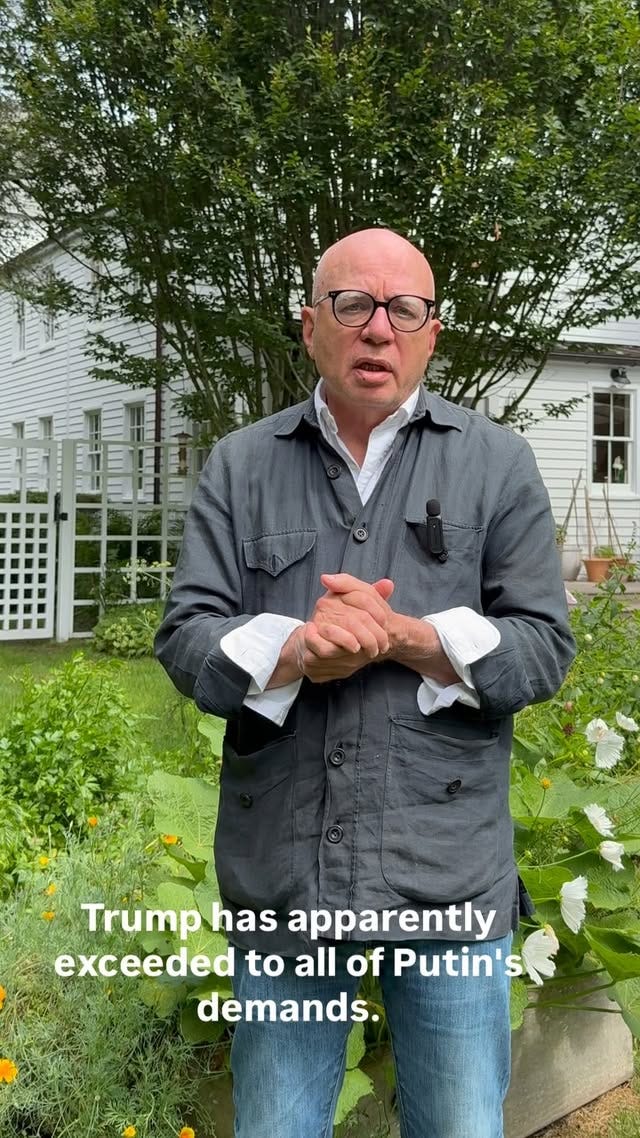A Summer Guest Drops In to Help Decipher AI Madness
AI promises mind-bending innovations. Many will materialize. But maybe we should stop pretending it’s just like us.
POD 148: Getting Mad at Toasters
Out Friday AM. Listen.
Good morning all. I hope you are enjoying these last wonderful weeks of summer.
Fun episode today with a special guest.
Brian checks in from a noisy Belgrade where anti-corruption protests continue. We sit down with hacker-investor Pablos Holman to puncture AI hype and ask what these systems are truly good for. Charlie Warzel’s essay in The Atlantic, “AI Is a Mass-Delusion Event” helps frame the conversation. Its a good read. Warzel wonders:
What if the real doomer scenario is that we pollute the internet and the planet, reorient our economy, outsource big chunks of our minds… and fight endlessly over a technology that never comes close to delivering on its grandest promises?
Pablos insists LLMs are “average engines,” not wisdom machines—good at language, terrible at judgment. Stop anthropomorphizing, he says. These are tools that make daily processes cheaper, faster, or more efficient. Drop illusions of creativity or sentience. Match the model to task. The real power shows up when AIs are built as domain models (think disease simulations or route planning). We’re still junior-high at best. Expect moral panic over inevitable “AI psychosis” as we make steady gains.
From there, we shift to the next disruption wave: hard tech. Pablos foresees self‑sailing wind cargo ships, space‑based solar that beam power to earth, and small borehole nuclear reactors. He argues hyperscalers’ compute demands will inadvertently fast‑track clean energy. His energy riff is memorable: Americans live on “nine toasters” worth of power when much of the world lives on one. In his view, the world needs ~10x more energy. Drill baby.
We finish on media. Why Michael Wolff’s perfectly framed summertime Amagansett Instagram missives find beautiful tension reframing sharp political commentary as a kind of lifestyle content. Good media always finds unique intersectionality. The broader lesson here… in “the feeds” where distribution is commoditized, good content does the heavy lifting. Good content is good distribution.






Great episode. I like Pablo's idea about AI for Ebola so thought I'd try a prompt treating Trump like Ebola. What happens if we ask AI (ChatGPT) to do Deep Research on the long-term effects of his policies? The answer was seemed usual AI synchophant answer however, I also asked it to challenge that point of view with a Project 2025/MAGA point of view. Essentially, the diagnosis isn't good either way.
Rampant Ebola sounds better.
Great episode. Was not familiar with Pablos so that was a nice introduction. Just wanted to quickly offer up a thought: A large part of the issue with technology in general (AI included, obviously) is that the "story" we ("normal people," as Brian said : ) are so often fed is the business story. "The richest man in the world!" "A $100B valuation!" "The next Trillion Dollar Company!" "Silicon Valley Mints More Millionaires a Day Than Anywhere in the World" etc etc etc. Every technology story comes with a $$$ valuation that supersedes the actual technology. Rarely have the stories been about the very cool things that these tools have the potential to enable, as Pablos points out. Those things are side bars to what's really important, apparently — the shear economic force with which these tools will hit us over the head with (which is also, not even that factual, again, as Pablos points out).
I think many more well-placed technology stories in "popular" media that didn't focus solely (or at all) on the $$$ would go a long way in helping people get behind the adoption of things like nuclear power. That's what Jobs was so good at. Telling the human-side of the story. And he was the perfect pitch man because he really believed in what he was selling. He was so passionate about it that you always got the feeling that even if he was a huge failure and living on the streets he'd still be saying the same things. If that wasn't the case he was one of the best actors there ever was. He made you want to believe and that pitch that he was feeding you was never about $$$. It was about how these things would change your life for the better.
Troy, you and I met when I was working with the agency AREA 17 and we were pitching Hearst long ago. Anyhow, I'm often reminded of the founder of A17, George Eid, telling me about his beginnings in technology in the early to mid '90s. George is a lot like Jobs in many ways. He is such a tech proponent but also at the very core a humanist. Anyhow, he was going on and on about early to mid 90s tech in such a joyful way and I asked him what changed and he said simply, "The MBAs got involved." I've always thought that was such a beautifully succinct way of summing up what's gone wrong in the industry. Not that MBAs are all bad but that they have taken over the storytelling and so the wrong stories are too often being told.
Thanks for the great podcast and writing all of you. Happy Friday!
P.S. Have been working with a great foundational disruptor in St. Louis called Bryzos. They are doing (and have been doing) what Pablos talks about — taking on the metals industry, a mulit-trillion dollar industry in and of itself. Worth checking out : )